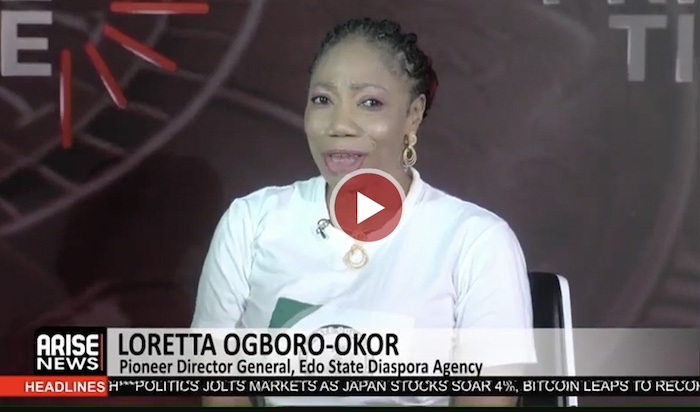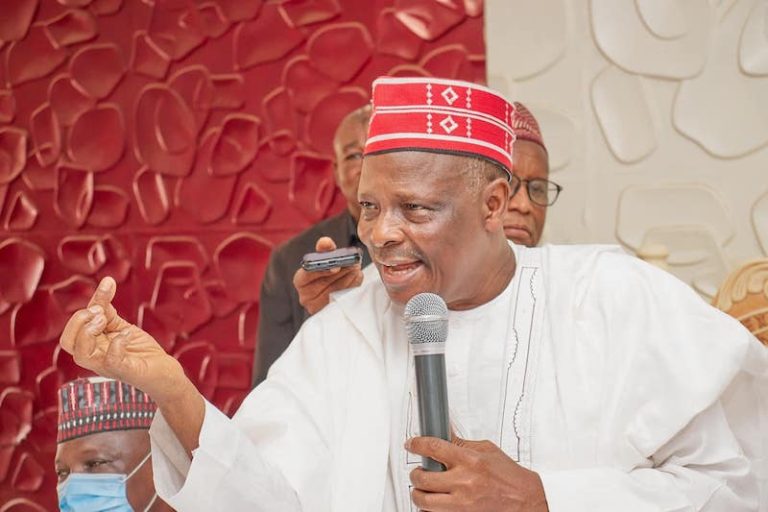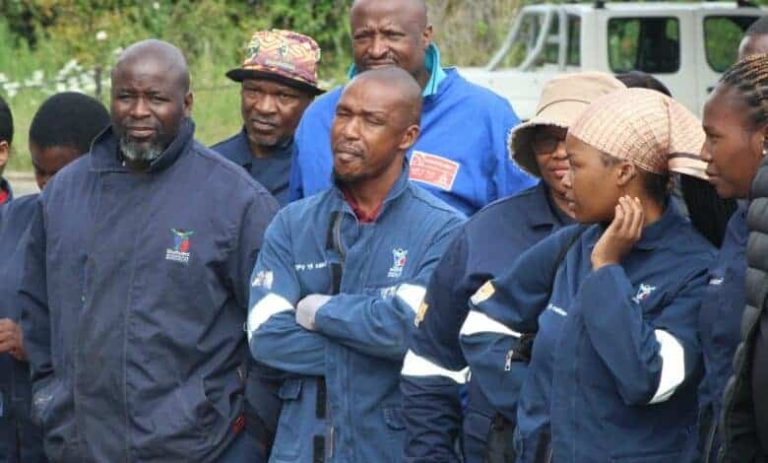

Pioneer Director General, Edo State Diaspora Agency, Ogboro-Okor, has clarified concerns surrounding the state’s recently announced $250 million investment deal, explaining that the Memorandum of Understanding (MOU) was signed as evidence of the expression of interest from investors willing to collaborate with the state government.
Speaking during an interview on ARISE NEWS on Monday, she emphasised that the agreement was signed to create a formal framework for future investments while due diligence and feasibility processes continue.
“An MOU is a non-binding agreement that expresses an intention to work together.
So we actually signed an MOU and that was signed completed on the 23rd. Investment procedures begin with an MOU. It is not legally binding, but it defines the direction and shared goals of the partners. They have already indicated that they will bring the funds in tranches over three to five years,” she explained.
She added that Governor Godwin Obaseki remains focused on driving sustainable economic growth in Edo through public-private partnerships and innovation, stressing that the administration’s proactive approach continues to attract credible investors.
Insisting that the investment deal followed due process and involved credible partners with verifiable track records. She explained, “We went to Scotland for a summit, and we had letters to even the First Minister of Scotland as far back as three months before that summit, and even the Ministry of Foreign Affairs about four months before then. So to say in two days people were assembled is not true.”
According to her, the summit, which marked the inaugural Edo Global Investment Summit was organised to attract genuine investors to the state. She explained that the Euro-African Chamber of Commerce and Industries expressed its intention to invest in Edo State across multiple sectors, including mining, agriculture, education, and human capacity development.
“During that hybrid event, their Director General logged in on Zoom and stated what the organisation represents and what attracted them to Edo State, our natural resources, land potential, and commitment to development,” she added.
She further dismissed allegations that the trip to Scotland was a vacation disguised as an investment mission, stressing that the summit was a registered international event with the participation of multiple stakeholders.
“The acting Nigerian High Commissioner in the UK was at the event. The governor was received on day one, had cultural engagements with his people on day two, and held meetings with investors on the third day. Saying it was a vacation is simply untrue,” she stated.
Ogboro-Okor, however, noted that some of the criticism surrounding the deal reflects a deeper societal issue, the tendency to doubt Nigerian-led initiatives unless validated by foreigners.
“I think we shouldn’t have some colonial mentality or the colouration of development, because Americans invest in America, Britons invest in Britain. Why should Nigerians not invest in Nigeria? Why should Edo sons and daughters not invest in Edo State if they have the capacity to do that?” she asked.
She emphasised the need to redefine Nigeria’s development mindset, saying true progress will come when citizens begin to value and trust local expertise, partnerships, and investments.
“Development should not be partisan. It should add value to human life and reflect our collective capacity as a people,” she said.
Ogboro-Okor also revealed that other investors, including Germany’s Voice Aid Association led by Astrid Arends, a former senator and SME advocate, had already begun follow-up engagements in Edo State in the areas of renewable energy, education, and capacity building.
“As I speak to you, Fortune 500 individuals from Germany are already in Edo State. The governor received them last week, and meetings are ongoing. Development takes time, it’s a marathon, not a sprint,” she said.
Nancy Mbamalu



